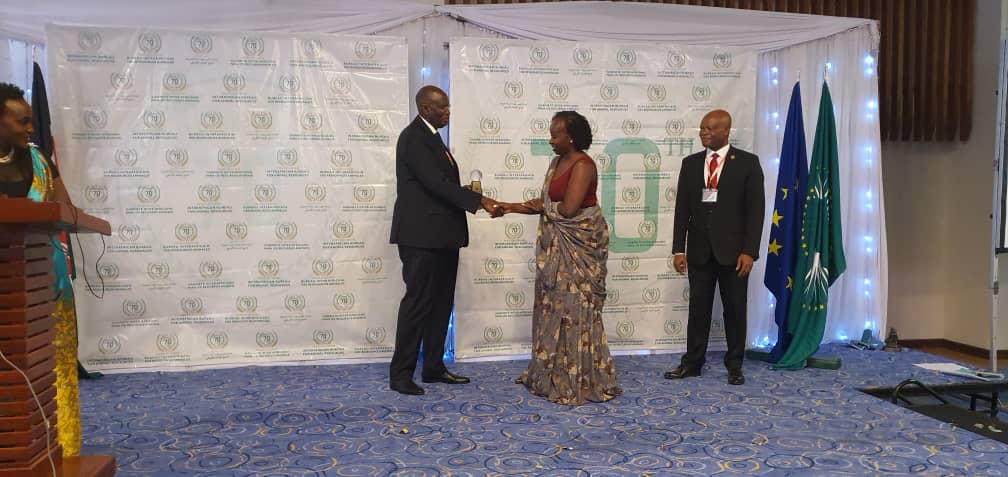
COMESA has been recognized for its role in the control and eradication of diseases to improve animal production and productivity in Africa. The award was presented during the African Union Inter-African Bureau for Animal Resources (AU-IBAR) 70th Anniversary and 10th Anniversary of Rinderpest Eradication
Director of Agriculture and Industry Ms Providence Mavubi received the award on behalf of the Secretary General of COMESA at the event conducted in Nairobi, Kenya on 18 March 2022.
Since its establishment in 1951 as the Inter-African Bureau of Epizootic Diseases (IBED), AU-IBAR has been pioneering the improvement of animal production and productivity and control and eradication of Transboundary Animal Diseases in partnership with COMESA and other regional economic communities
Among recent partnerships with COMESA are the implementation of the Reinforcing Veterinary Governance (VET-GOV), strengthening institutional capacity to enhance governance of the Fisheries Sector in Africa (FishGov 1 & 2).
Others are strengthening the Pan-African platforms for enhancing entrepreneurship and coordination in the animal resources sector by enhancing women empowerment and independence and youth agribusiness and employment and implementing a Sustainable Development of Livestock for Livelihoods in Africa (Live2Africa). This project is mainly focused on enhancing the contribution of animal resources to sustainable socioeconomic development and equitable growth.
In her remarks, Ms Mavubi stressed the need to transform livestock agriculture from subsistence extensive system which has been suffering from recurrent drought due to climate change and human made calamities to more intensive and market targeted agriculture.
“In Africa we have land, human power and conducive agroecology, thus we need to open up and attract investment from where there has been a limitation, the case in point is dairy in Europe,”” she said. “We also need to use the opportunities in our continent to trade more among ourselves using the provisions of RECs and the Africa Continental Free Trade Area (AfCFTA) opportunities.”
Currently, the AU member States have increasingly focused their attention to the agricultural transformation, by enhancing livestock and fisheries value chains and expanding agro-processing and opening up their economies to domestic and international investments.
The COMESA director urged for strengthening regional capacities especially on development and harmonization of sanitary measures and compliance to international standards. This is critical in the phase of increasing challenges of climate change and its effect on the incidence of emerging and re-emerging animal diseases of trans-boundary nature.
Among the key partners in the implementation of the continental livestock development programme are the World Organization for Animal Health (OIE) and the Food and Agriculture Organization of the United Nations (FAO), and World Health Organization.




